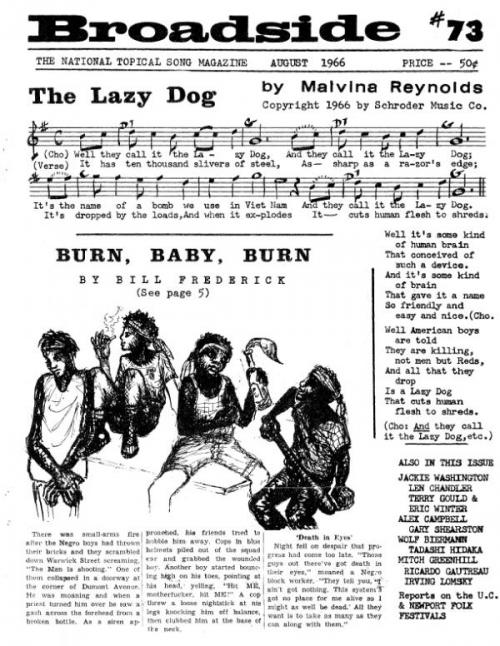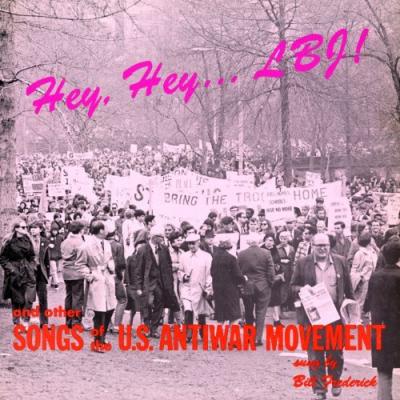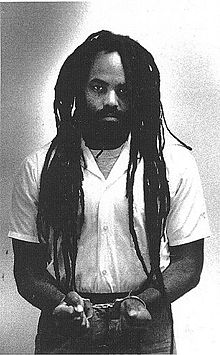Author Fred Stanton
Brooklyn Bridge

[2002]
Lyrics & music by W. Frederick Stanton AKA Bill Frederick
How the Brooklyn Bridge was built, and the continuing march across it..
“The air is unusually healthy”, noted a visitor, passing through the small village of Brooklyn in 1794. The 100 mostly one-story houses were “chiefly along the shore or scattered without plan”, he noted, and the streets were “bad, heavy, and unpaved, so that the smallest amount of rain makes Brooklyn muddy”.
The village of Brooklyn, directly across the East River from Manhattan, was the funnel through which the food grown on Long Island's rich farmlands passed to New York City. As New York City flourished, so did its nearest neighbor. Rowboats, sailboats, and horse-powered ferries plied the waters of the East River, and speculators and merchants began to buy land along the waterfront. The U.S. Navy opened a shipyard on Wallabout Bay in 1801, and... (Continues)
Lyrics & music by W. Frederick Stanton AKA Bill Frederick
How the Brooklyn Bridge was built, and the continuing march across it..
“The air is unusually healthy”, noted a visitor, passing through the small village of Brooklyn in 1794. The 100 mostly one-story houses were “chiefly along the shore or scattered without plan”, he noted, and the streets were “bad, heavy, and unpaved, so that the smallest amount of rain makes Brooklyn muddy”.
The village of Brooklyn, directly across the East River from Manhattan, was the funnel through which the food grown on Long Island's rich farmlands passed to New York City. As New York City flourished, so did its nearest neighbor. Rowboats, sailboats, and horse-powered ferries plied the waters of the East River, and speculators and merchants began to buy land along the waterfront. The U.S. Navy opened a shipyard on Wallabout Bay in 1801, and... (Continues)
When a bridge begins, it’s just a dream,
(Continues)
(Continues)
Contributed by giorgio 2020/9/1 - 23:00
Song Itineraries:
Bridges
Burn, Baby, Burn

[1965]
Parole e musica di Bill Frederick, pseudonimo usato in gioventù dal cantautore statunitense Fred Stanton
Una canzone che non credo sia mai stata incisa su disco. Il testo fu pubblicato sul n. 73 di Broadside Magazine, agosto 1966.
Una canzone dedicata ai Watts Riots dell’agosto 1965, quando nel sobborgo losangelino di Watts si scatenarono violentissimi tumulti razziali che durarono 6 giorni e causarono 34 morti, centinaia di feriti e danni per oltre 40 milioni di dollari, con quasi 1.000 edifici distrutti o gravemente danneggiati dagli incendi. E tutto a partire da un banale controllo di polizia…
A proposito dei Watts Riots si vedano anche Trouble Every Day e In The Heat Of The Summer
Parole e musica di Bill Frederick, pseudonimo usato in gioventù dal cantautore statunitense Fred Stanton
Una canzone che non credo sia mai stata incisa su disco. Il testo fu pubblicato sul n. 73 di Broadside Magazine, agosto 1966.
Una canzone dedicata ai Watts Riots dell’agosto 1965, quando nel sobborgo losangelino di Watts si scatenarono violentissimi tumulti razziali che durarono 6 giorni e causarono 34 morti, centinaia di feriti e danni per oltre 40 milioni di dollari, con quasi 1.000 edifici distrutti o gravemente danneggiati dagli incendi. E tutto a partire da un banale controllo di polizia…
A proposito dei Watts Riots si vedano anche Trouble Every Day e In The Heat Of The Summer
Back in the days of ancient Rome,
(Continues)
(Continues)
Contributed by Bernart Bartleby 2017/11/29 - 08:59
Exploitation Blues

[1967]
Parole e musica di Bill Frederick, che nei primi anni 60 era un giovane studente ed obiettore di coscienza al servizio militare in Vietnam.
Contribuì diverse canzoni su Broadside Magazine, alcune delle quali sono già presenti sulle CCG/AWS
Nel 1967 le canzoni di Bill Frederick vennero raccolte nel disco intitolato “Hey, Hey… LBJ! Songs of the U.S. Anti-War Movement”
Il testo di “Exploitation Blues” l'ho trovato per caso sull'imprescindibile Mudcat Café, dove ho anche appreso che Bill Frederick non ha di fatto mai smesso di scrivere e di proporre canzoni, anche se in tempi più recenti si firma col suo vero nome, ossia Fred Stanton, classe 1943.
So bene che incasinerò la vita ai perfidi Admins, ma pare proprio che Bill Frederick e Fred Stanton siano la stessa persona.
Parole e musica di Bill Frederick, che nei primi anni 60 era un giovane studente ed obiettore di coscienza al servizio militare in Vietnam.
Contribuì diverse canzoni su Broadside Magazine, alcune delle quali sono già presenti sulle CCG/AWS
Nel 1967 le canzoni di Bill Frederick vennero raccolte nel disco intitolato “Hey, Hey… LBJ! Songs of the U.S. Anti-War Movement”
Il testo di “Exploitation Blues” l'ho trovato per caso sull'imprescindibile Mudcat Café, dove ho anche appreso che Bill Frederick non ha di fatto mai smesso di scrivere e di proporre canzoni, anche se in tempi più recenti si firma col suo vero nome, ossia Fred Stanton, classe 1943.
So bene che incasinerò la vita ai perfidi Admins, ma pare proprio che Bill Frederick e Fred Stanton siano la stessa persona.
Years ago in the Belgian Congo mine
(Continues)
(Continues)
Contributed by Bernart Bartleby 2017/11/27 - 22:12
Springtime

[2002]
Lyrics & Music by Fred Stanton
Album: Take Out
Written in spring of 2002 for a gathering of poets for peace, organized around the theme "springtime and war."
Lyrics & Music by Fred Stanton
Album: Take Out
Written in spring of 2002 for a gathering of poets for peace, organized around the theme "springtime and war."
Japanese cherries sprout buds on the mall,
(Continues)
(Continues)
Contributed by giorgio 2010/5/19 - 12:34
Boat People
[2002]
Album: Take Out
Don't discriminate us, don't despise us.. ALL of us (have been and) are boat people!!
Album: Take Out
Don't discriminate us, don't despise us.. ALL of us (have been and) are boat people!!
Pardon me, bud, I thought you understood,
(Continues)
(Continues)
Contributed by giorgio 2009/12/6 - 10:59
Five-Dollar Coal
[2004]
Album: Freedom Fries
Lyrics & Music by: traditional arranged and adapted by Fred Stanton
Coal miners in Utah fight for a union. Seventy-five coal miners, most of them from Mexico, are on strike at the Co-Op mine in Huntington, Utah. The song's title refers to the minimum wage, which is the starting wage in that mine.
Album: Freedom Fries
Lyrics & Music by: traditional arranged and adapted by Fred Stanton
Coal miners in Utah fight for a union. Seventy-five coal miners, most of them from Mexico, are on strike at the Co-Op mine in Huntington, Utah. The song's title refers to the minimum wage, which is the starting wage in that mine.
From the sunshine of Sinaloa
(Continues)
(Continues)
Contributed by giorgio 2009/12/2 - 12:51
There Goes the Neighborhood
[2006]
In early 2006, after the U.S. government threatened to pass harsher immigration laws, hundreds of thousands of workers, mostly immigrants, demonstrated for legalization across the country. Many of those who rallied were workers who are fighting to build a union. One sign at the march in Los Angeles said, "If you think I'm 'illegal' because I'm a Mexican, learn the true history, because I'm in my homeland." [please italicize "I’m"]
In early 2006, after the U.S. government threatened to pass harsher immigration laws, hundreds of thousands of workers, mostly immigrants, demonstrated for legalization across the country. Many of those who rallied were workers who are fighting to build a union. One sign at the march in Los Angeles said, "If you think I'm 'illegal' because I'm a Mexican, learn the true history, because I'm in my homeland." [please italicize "I’m"]
This was our land for fifteen thousand years.
(Continues)
(Continues)
Contributed by giorgio 2009/11/29 - 13:24
Dangerous Dreams
[2002]
Album: Take Out
New York Times magazine couldn't understand why Palestinian children do what they do...
Well, that is not so difficult: they were being ethnically cleansed by the Zionist movement. People were force from their home, people were killed and homes were burned down, so the people fled in hope for a new and better live somewhere else (which most of them didn’t). Because of they would make it bigger it would lose it’s status as a refugee camp and would lose most of the support their getting from the UN and other organizations. If aid to the people would be stopped there would not be much hope for these people since they’re not educated, they don’t have money and don’t have any means to make a life for them selves. So the problem would only grow for these people.
The biggest ratio of martyrs in the two Intifatas came from Balats (if you count per capita), that the... (Continues)
Album: Take Out
New York Times magazine couldn't understand why Palestinian children do what they do...
Well, that is not so difficult: they were being ethnically cleansed by the Zionist movement. People were force from their home, people were killed and homes were burned down, so the people fled in hope for a new and better live somewhere else (which most of them didn’t). Because of they would make it bigger it would lose it’s status as a refugee camp and would lose most of the support their getting from the UN and other organizations. If aid to the people would be stopped there would not be much hope for these people since they’re not educated, they don’t have money and don’t have any means to make a life for them selves. So the problem would only grow for these people.
The biggest ratio of martyrs in the two Intifatas came from Balats (if you count per capita), that the... (Continues)
Ahmed is sleeping, Ahmed is dreaming,
(Continues)
(Continues)
Contributed by giorgio 2009/11/29 - 11:45
From Jenin
[2002]
Album: Take Out
Palestinian residents of Jenin camp defend their homes. Solidarity with the Palestinian people!
Album: Take Out
Palestinian residents of Jenin camp defend their homes. Solidarity with the Palestinian people!
From Jenin, we can see the fields,
(Continues)
(Continues)
Contributed by giorgio 2009/11/22 - 08:50
Song Itineraries:
The Palestinian Holocaust
Celebration
The camera zooms in on the Square of Paradise,
(Continues)
(Continues)
Contributed by Riccardo Venturi 2005/7/2 - 10:47
×
![]()


Lyrics & Music by Fred Stanton
Mumia Abu-Jamal was an activist, part-time cab driver, radio personality (news commentator and broadcaster) and a renowned journalist from Philadelphia. He has been in prison since 1981 and on death row since 1983 for allegedly shooting Philadelphia police officer Daniel Faulkner.
He is known as the "Voice of the Voiceless" for his award-winning reporting on police brutality and other social and racial epidemics that plague communities of color in Philadelphia and throughout the world. Mumia has received international support over the years in his efforts to overturn his unjust conviction.
Mumia Abu-Jamal was serving as the President of the Association of Black Journalists at the time of his arrest. He was a founding member of the Philadelphia Chapter of the Black Panther Party as a teenager. Years later he began reporting professionally on radio... (Continues)